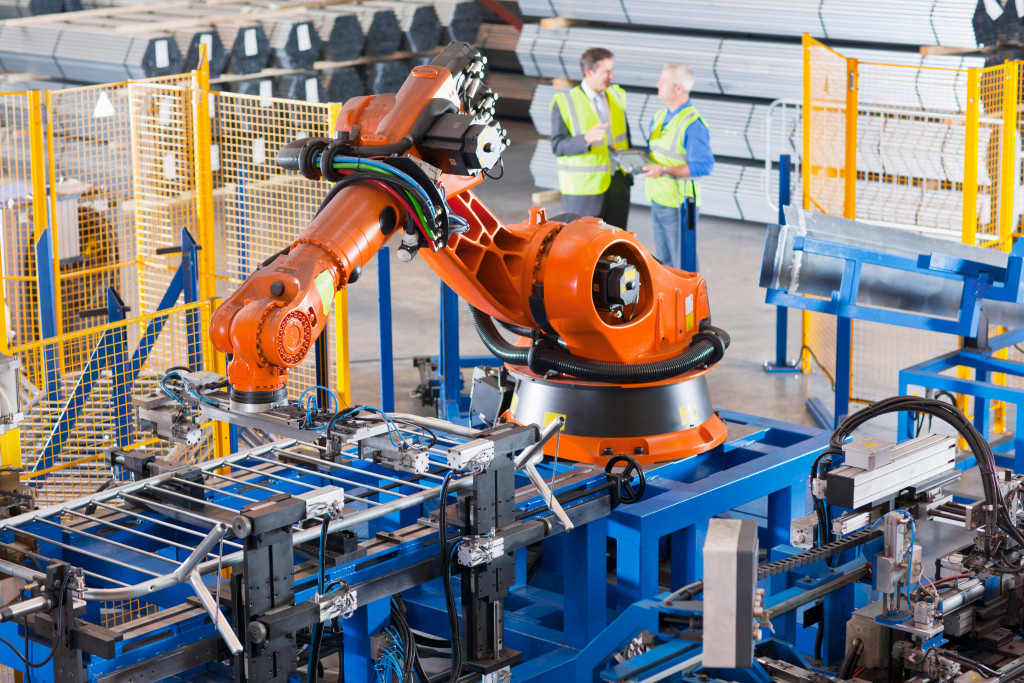- Eco-friendly manufacturing reduces carbon emissions and energy consumption, supporting social initiatives and gaining a competitive advantage.
- Sustainable technologies, including renewable energy, water conservation, and automation, facilitate environmentally conscious manufacturing.
- Zero-waste manufacturing and advanced material science contribute to sustainability by recovering usable resources and promoting eco-friendly materials.
- Future eco-friendly manufacturing will leverage AI to optimize energy efficiency, develop sustainable supply chains, and support circular economy concepts.
- The shift towards eco-friendly manufacturing substantially impacts global environmental preservation and will continue to evolve with technological advancement.
In today’s world, with the growing consciousness of people for the environment, companies need to shift towards eco-friendly manufacturing to meet demands. Despite contributing to the economy, the manufacturing industry has been a significant source of carbon emissions and environmental pollution for decades. However, with the emergence of sustainable technologies, manufacturing is slowly changing to become environmentally conscious. This blog post will discuss the importance of eco-friendly manufacturing and how it is transforming the industry with sustainable technologies.
Importance of Eco-Friendly Manufacturing:
The impact of traditional manufacturing on the environment is significant. Many industries want to decrease their environmental footprint, and eco-friendly manufacturing can solve the problem. By using sustainable technology, companies can reduce carbon emissions and energy consumption, leading to a better environment. The benefits of eco-friendly manufacturing don’t end here- it also supports community and social initiatives, helps companies gain a competitive advantage, and increases employee satisfaction.
Sustainable Technologies in Manufacturing:
Eco-friendly manufacturing can be achieved with the advancement of sustainable technologies. Different types of technologies are designed to be used specifically for reducing environmental pollution. Here are some examples:

Renewable energy sources
Many companies are using renewable energy sources like solar power and wind turbines to reduce their dependence on fossil fuels. By investing in these resources, manufacturers can save costs while being environmentally conscious. Many companies also use green building materials and energy-efficient appliances to reduce their environmental impact.
Water conservation technology
Water conservation technology is another critical factor for eco-friendly manufacturing. Companies use it to reuse wastewater and rainwater for different processes such as cooling, cleaning, and washing. This helps to reduce water consumption and wastewater discharge significantly. When combined with water recycling technology, manufacturers can reduce their water usage even further.
Automated systems
Automated systems have been designed to make production processes more efficient and reduce waste. As a result, manufacturers can save resources and energy while improving their output quality. In addition, automated systems can also reduce the number of employees needed to perform manual tasks in factories.
For example, filling containers, especially with viscous products, can be a wasteful process as it requires a lot of human labor. Automated systems are designed to reduce the number of people required and increase accuracy in filling. Many companies use overflow filling line equipment to reduce wastage and increase production efficiency. It also reduces energy consumption significantly.

Zero-Waste Manufacturing:
One of the most significant challenges for the manufacturing industry has been the disposal of hazardous waste. Waste management is not only expensive, but it also contributes to environmental pollution and greenhouse gas emissions if not managed properly.
Zero-waste manufacturing is a solution for sustainable development. It involves recovering materials considered as waste before and minimizing surplus material in manufacturing. The zero-waste approach is an economically beneficial tactic for companies as it recovers usable resources and reduces environmental degradation.
Advanced Material Science:
At the core of any product is the material from which it is made. Advanced material science is an area where sustainable technologies can help reduce the environmental impacts of manufacturing. New materials that are certified as eco-friendly are appearing on the market, such as recycled plastic, biodegradable paper, and other renewable resources.
For example, the automotive industry is looking for ways to reduce its environmental impact. They are now investing in lightweight materials like aluminum and magnesium that can significantly reduce vehicle weight and fuel consumption. Although these materials are more expensive than traditional ones, the long-term benefits outweigh the costs.
Future of Eco-Friendly Manufacturing:
The manufacturing industry is continually looking for ways to reduce environmental impact. Sustainable technologies will play a pivotal role in shaping the future of eco-friendly manufacturing. With the advancement of AI technology in manufacturing processes, companies can optimize energy efficiency, reduce energy consumption, and lessen environmental waste. The future sustainability initiatives will focus more on developing a sustainable supply chain, resource efficiency, and supporting circular economy concepts.
The manufacturing sector has transformed over the years, and with the advent of sustainable technology, it’s moving towards a more eco-friendly manufacturing process. Eco-friendly manufacturing practices have an enormous impact globally, reducing waste greenhouse gas emissions and safeguarding the environment. It’s safe to say that sustainable manufacturing practices and technologies will continue to gain momentum in the future to provide a better environment for our current and future generations.









